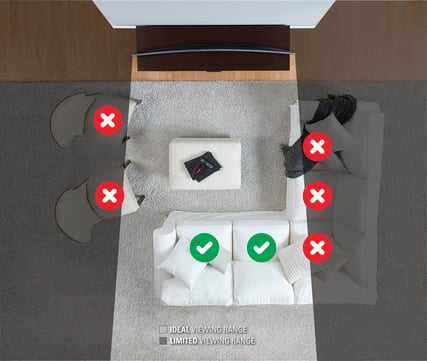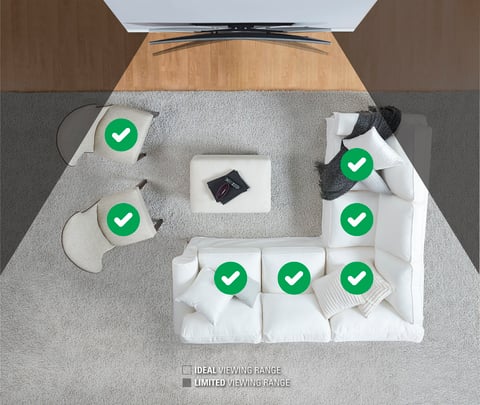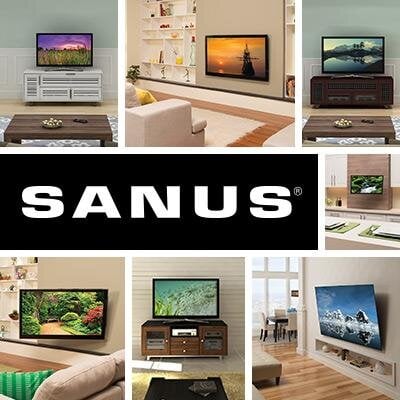Several big name brands offer curved-screen TV options in addition to the more familiar flat-screen TVs. Curved TVs are not necessarily the right choice for every household, but they do offer some distinct viewing benefits.
More Engaging Experience
As Christopher Columbus and others have proven, the world is not flat. The rounded screen on a curved TV is meant to imitate real life the way your eyes expect to see it, by incorporating your peripheral vision. It feels as if you’re seeing a wider picture. In part that’s because the picture at the edges is sharper on a curved screen, whereas resolution on a flat screen can appear to lose sharpness.
This effect is especially noticeable on larger size screens. It’s the reason commercial movie theaters use a curved screen. It’s also something to keep in mind if you’re shopping for a large-screen TV, meaning something 40" or larger.
The picture appears to have greater depth, too – almost like you’re watching in 3D, according to some consumers. The reason is that you’re actually seeing a foreground and background, as the curved screen displays multiple layers. Some TVs process the image to make the most of this feature.
At least theoretically, curved screens also display images in sharper contrast – twice as sharp according to some manufacturers. The thinking behind this is that a flatscreen “scatters” light across the entire screen, but a curved screen appears to focus light toward the viewer.
That said, curved TV screens accommodate a wider viewing angle without distortion, loss of color saturation, or contrast compared to a standard LCD TV.
On the Other Hand . . .
The perfect television has yet to be invented. So like all types of TVs on the market today, the curved TV has some disadvantages you should consider.
How many people will be watching, usually? Curved TVs have a definite “sweet spot,” in spite of their broad visibility. At an oblique angle, the curved screen looks more like a rhomboid – wider on one side than the other. This distorts the picture you see, and can even eliminate visibility on the near side. This isn’t an issue if there are just one or two viewers, but with a big group it could be a problem. And if you have a sectional or multiple viewing areas in a room, and you don’t have your TV mounted without the ability to swivel it, you can really only view it from one spot in the room.

Some manufacturers have addressed this issue by creating shallower curves.
In some rooms, reflections or bright light from windows can distort viewing. Of course, this can be an issue with any television, which is why SANUS makes adjustable or full-motion wall-mounts for TVs.
And Speaking of Wall Mounting . . .
Worried about whether you should mount your curved TV on the wall? Will it look weird? Really, it is personal preference, but there are many benefits to putting your curved TV on the wall. In fact, wall-mounting is a great choice to maximize viewing of your curvaceous TV. All SANUS mounts include hardware specially designed to fit curved TV models. The SANUS OLF18 may be a great option for you if you want to extend your TV out from the wall and swivel it to view from multiple areas. If you don’t need to extend your TV from the wall, another great option is the Swivel Mount for Curved TVs which keeps a sleek profile and allows you to swivel it as well.

You’ll also want to hide the cords. Just use an easy-to-install, seamless-looking SANUS cable tunnel. We also make several variations of wall-mount shelves to house related AV components under your TV, freeing up even more surface space in your home.
Topics: Curved TV Mount

